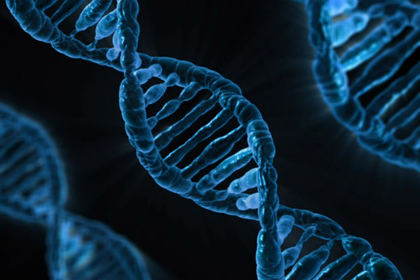
Genetics Is Giving Way to a New Science of Life
Our existence also depends on proteins, fats, carbohydrates and RNA (Ribonucleic Acid); but no one says “it’s in my protein”. But here is a question: is it any less scientifically preposterous to say something “is in my DNA”?
February 5, 2017 | Source: Independent Science news | by Jonathan Latham, PhD
Test your understanding of the living world with this simple question. What kind of biomolecule is found in all living organisms? If your answer is “DNA”, you are incorrect. The mistake is very forgiveable though. The standard English-language biology education casts DNA (DeoxyriboNucleic Acid) as the master molecule of life, coordinating and controlling most, if not all, living functions. This master molecule concept is popular. It is plausible. It is taught in every university and high school. But it is wrong. DNA is no master controller, nor is it even at the centre of biology. Instead, science overwhelmingly shows that life is self-organised and thus the pieces are in place for biology to undergo the ultimate paradigm shift.
The mythologising of DNA
Highly respected scientists make very strong claims for the powers of DNA. In his autobiography, Nobel Laureate Kary Mullis called it “The King of molecules” and “The big one”. Maybe he read DNA: The Secret of Life, a popular science book that calls DNA the molecule that “holds the key to the very nature of living things”. Its author should know. He is Nobel Laureate, James Watson, co-discoverer of the structure of DNA. Even institutions have strong opinions when it comes to DNA; the website of the US National Institutes of Health claims “Genes are at the center of everything that makes us human”.
My edition of The Secret of Life features on its back cover Eric Lander. Lander is the celebrated brains behind modern human genetics. He is also the head of the Broad Institute at MIT. In his blurb, Lander endorses “The secret of life” trope. Just below him on the jacket is Professor of genetics Mary-Claire King. She writes: “This is the story of DNA and therefore the story of life, history, sex, money, drugs, and still-to-be-revealed secrets.” According to Prof. King, DNA is life.
The Watson view of genetics dominates education too. The standard US high school biology textbook “Life“, of which we own the 1997 edition, frames the entirety of biology around DNA, thereby giving it the biochemical status of life’s centrepiece.
Meanwhile, Francis Collins, longstanding head of the National Institutes of Health, has published bestselling books about DNA with titles like The Language of Life and the Language of God. It should be no surprise then that the idea of DNA as a master molecule is one of the dominant ideas of our age.
Some biologists will say that these views are extreme and unrepresentative. They are, and part of this article is to explain why extreme views about DNA dominate the public discourse. But its main purpose is to contrast the portrayal of DNA by virtually all biologists with the narrow scientific treatment they apply to other biological molecules. Our existence also depends on proteins, fats, carbohydrates and RNA (Ribonucleic Acid); but no one says “it’s in my protein”. But here is a question: is it any less scientifically preposterous to say something “is in my DNA”?
To take a ruthless look at that question is thus the purpose of this article. Does DNA have any claim to being in control? Or at the centre of biological organisation?
The answer is that DNA is none of the things Watson, Lander, and Collins claim, and that even the standard nuanced biologist’s view of life is wrong. This is provable in many ways but mainly by a new science of life that is emerging from almost complete obscurity. This new science explains the features of living beings in productive new ways that DNA-centric, genetic determinist, biology has not, and cannot. DNA is not the language of God. It is not even the language of biology.
